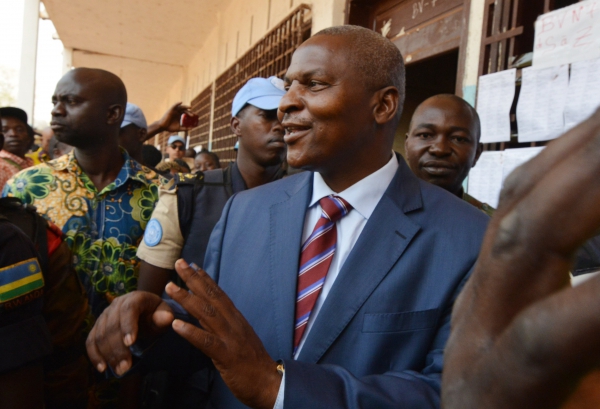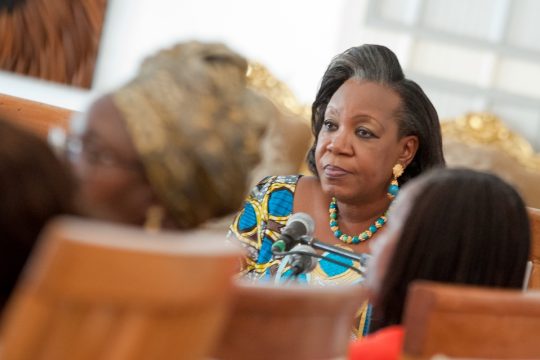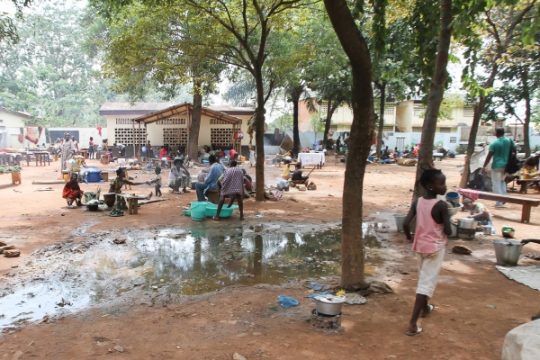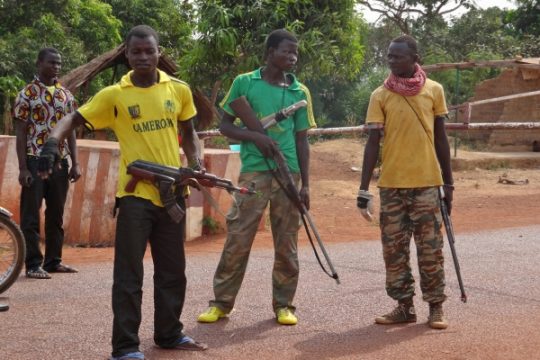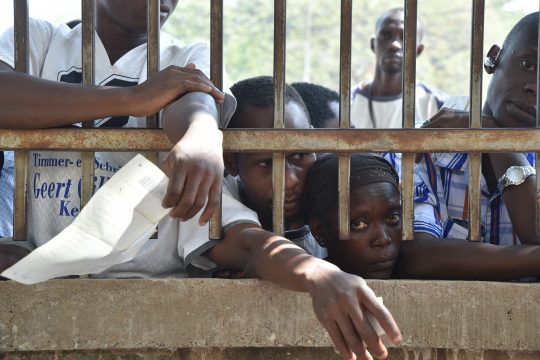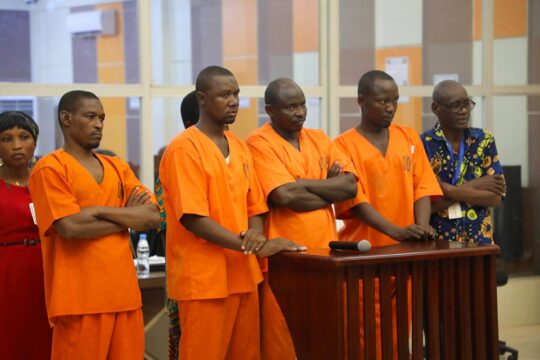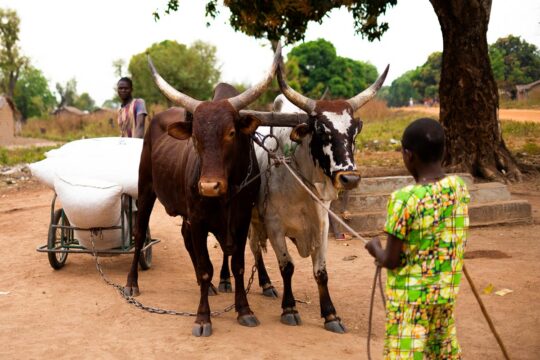Didier Niewiadowski travelled all over the Central African Republic (CAR) from 2008 to 2012 when he was cooperation and cultural advisor at the French embassy. This academic who also taught law for years in other African countries, urges new CAR President Faustin Archange Touadéra to put a transitional justice process in place quickly, because building up a normal judicial system is a long-term project in the country’s current context. In an interview with JusticeInfo, the French jurist also said he thinks the new president’s slogan “breaking with the past” needs to be qualified, given the return to power of some controversial figures from the Bozizé era.
JusticeInfo: Do you think President Touadera has a real will to get the Special Criminal Court* working and set up a real transitional justice process?
Didier Niewiadowski: Both during colonization and since independence, rule of law has been almost non-existent in the Central African Republic. Laws are not applied nationally, they are rarely published officially and legal practitioners are not as well trained as they were before. Corruption is rampant, there are countless fake documents, judgments are often based on intuitu personae and the prison system is falling apart. So rebuilding the judicial system is a long-term task. The law setting up the Special Criminal Court is innovative and well adapted to the CAR. The most difficult thing is to actually implement it. Given the lack of funding and the fact that procedures will necessarily be long and costly, it will likely take more than the five-year mandate of President Touadéra before there are any judgments. Again, transitional justice is well suited to the situation in the CAR. In Africa, the law must sometimes work alongside social sciences. In the CAR, it doesn’t seem that the new government has realized all the advantages of this form of justice, which could contribute a lot to national reconciliation.
JusticeInfo: How can potential obstacles to a transitional justice process in the CAR be overcome?
DN: Transitional justice is a well-adapted response to the violence suffered by Central Africans of all ethnic groups, religious or philosophical convictions. The divisions and antagonisms are not as old or as deep as in Rwanda, South Africa or even Côte d'Ivoire. Organizations like the Community of Sant'Egidio, Observatoire Pharos and the Organization of Islamic Cooperation could prepare these sessions that would be not only expiatory but also therapeutic. The role of the religious platform composed of Archbishop of Bangui Mgr. Dieudonné Nzapalainga, the imam of PK5 Oumar Kobine Layama and Pastor Nicolas Grékoyamé Gbangou, who heads the Alliance of Protestant churches, should obviously be important, given their incontestable moral authority.
JusticeInfo: What is the real root of the conflict in the Central African Republic? Isn’t it too simplistic to see it as just antagonism between Christians and Moslems?
DN: The Central African crisis is the result of chronic bad governance, the impunity enjoyed by predators who have prospered from one regime to the next and the shameful amnesia of the CAR’s partners with regard to the excesses of endemic corruption, as the ordinary people are abandoned and left to fend for themselves against the destructive forces in the country. Nearly a quarter of the population have lost their homes and more than 60% have lost any kind of income-generating activity. Conflicts over seasonal transhumance between mostly Christian crop growers and mostly Muslim livestock owners are degenerating and becoming more deadly because the traditional routes are no longer accessible. Many abuses arise from these conflicts of interest. But to present the Central African crisis as an inter-confessional conflict is an error which has unfortunately caused a lot of harm.
JusticeInfo: How can the country get rid of the armed groups, whose activities seem to be on the increase again as Touadéra announces the start of the DDRR process? (Disarmament, Demobilization, Reintegration and Repatriation)?
DN: The CAR’s borders are so unpoliced that armed groups from outside can stage big raids without much risk and even grab territory, especially in mining areas. Without a national army, it is hard to stop these attacks on national sovereignty. The heavy build-up of weapons during ex-president Bozizé’s rule, amplified by the national crisis that has not spared any region of the country, has made the Central African Republic a real powder keg. President Touadéra is putting the emphasis on a DDRR process requiring funding that is hard to raise. It would be wiser to call this indispensable process “RDDR”, because “Repatriation” is a prerequisite for “Disarmament, Demobilization and Reintegration”. Attempts at this process have failed miserably in the past, with embezzlement of funds, many expert reports without impact and chaotic management, resulting in an inevitable strengthening of the rebel groups. The failure of the previous DDR process is one of the causes of the Central African crisis. The new RDDR must be innovative and change the methods that have proved so toxic.
JusticeInfo: And how can the Central African Armed Forces, with their reputation for coups and human rights abuses, be reformed?
DN: Creating a National Army is no simple matter in this country that has had so many mutinies and coups d'Etat. Every President has preferred to strengthen their presidential guard, often with foreigners, rather than giving more human resources and equipment to a real National Army. With a lack of barracks and appropriate logistics across the country, it is hard for the army to control the lawless zones and end the rule of warlords. Many Central Africans were surprised to see the franco-Central African candidate (Joseph Yakete), who came 24th in the presidential election with 5,904 votes, become Defence Minister. Is this Parisian political scientist the man for the job? Some young Central African senior officers have received good training, notably in France, and they should participate more in creating the future National Army, rather than generals who have been in the forefront for decades.
JusticeInfo: What assets does the new government have to pull the country out of decades of recurrent crises?
DN: Given the situation the country is in, President Touadéra has not had the right to a grace period. He nevertheless has strong support in the National Assembly to start implementing his programme. The international community must immediately provide him with support, expertise and especially funding, but he must also put an end to the nepotism, clanism, money-grabbing and discrimination between citizens which are so deeply rooted in the Central African system of governance.
JusticeInfo: When we look at President Touadéra’s team, can we really say it is “breaking with the past”?
DN: For President Touadéra, “breaking with the past” seems to mean mostly the Transition period that started with Michel Djotodia’s March 24, 2013 coup d'Etat, leaving out the period that started with the Libreville Accords of January 11, 2013 (these accords provided for a ceasefire between Djotodia’s Seleka rebel movement and the government of François Bozizé, keeping Bozizé in power), and obviously the period when he was Prime Minister. Didn’t he, in his inauguration speech, directly blame the political parties that refused to accept the results of the 2011 general elections and deplore the high number of victims, but referring only to the victims of the March 24, 2013 coup? He has naturally reappointed a good number of ministers from his 2011 government and promoted his close aides who were forced to step aside with him after the Libreville Accords. The return of certain ministers and aides obviously shows the limits of this “break with the past”, especially when it comes to certain ministers who are far from having been irreproachable and are not well liked by many Central Africans.
JusticeInfo: Why do you think Touadéra refrains from mentioning the fate of his predecessors Bozizé and Djotodia, who are under UN sanctions (asset freeze and travel ban), for their role in destabilizing the CAR?
DN: Even if the two former presidents are under the same international sanctions, which are not really applied, their situation is different and President Touadéra probably doesn’t want to put them in the same bag. He probably wouldn’t have presented himself as a candidate for the presidential polls if François Bozizé had been able to run. President Touadéra is a lot less opposed to his former boss than to his close relatives and clan who have been excluded from the new government. On the other hand, he holds Michel Djotodia and his government responsible for the tragedy Central Africans have suffered. This relative goodwill towards François Bozizé and stated hostility towards Michel Djotodia and his political supporters seems to be shared by many Central Africans, as we can see from the results of the last general elections.
JusticeInfo : There is the same silence on the return of Noureddine Adam, former second-in-command of Seleka…
DN: Like a lot of group leaders of the Anti-Balaka and ex-Seleka, Nourredine Adam – who is also under sanctions that are not applied -- continues to conduct his activities as a warlord untroubled, near Ndélé, with the protection of the sultan of Ndélé and indifference of the MINUSCA (UN mission) cantonment. He can count on solid friends in Chad, Sudan and in the Gulf States. The new government can only keep repeating words and recognize its powerlessness. For decades, impunity has been the biggest cause of lack of development and bad governance in the Central African Republic.
*The transitional Central African authorities published on June 2015 a law providing for the creation within the national judicial system of a Special Criminal Court. This Court is to be composed of national and international staff and has a mandate to bring to justice the suspected perpetrators of the most serious crimes, such as war crimes and crimes against humanity, committed in the country since 2003.




